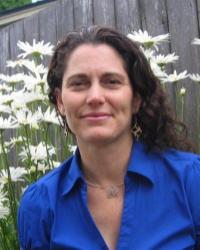Guest Profile
Tia Ho
My name is Tia H. Ho, PhD, MST and I use she/they pronouns (why pronouns are important). I launched this business as my way of advocating for innate resilience. As a trauma survivor I felt that the way the medical, self-help, and even psychotherapy traditions viewed health as focused on people being flawed and teaching them ways to “fix” themselves missed the mark. Often these well intentioned approaches don’t reveal the built-in intelligence and innate resilience everyone has, nor do they question the settings that condition our responses. People are labeled for what isn’t working without recognizing the larger whole. We live in societies where policies in education, housing, the economy, health care, and the justice system convey a message that the system’s failings (lack of a well paying job, lack of health care, lack of adequate housing, dehumanization) are primarily the individual’s fault. This social conditioning makes seeing our capacity even more difficult.
I began cultivating restorative approaches at the age of 16 in the midst of surviving abuse and poverty. My desire to feel better launched a life-long path of exploring multiple ways to support a sensitive brain-body human system.
As a community health researcher I studied the health equity implications of policies that affect where we live, learn, work, play and pray such as food access, education, transportation, and housing. In that role I learned that the number of adverse childhood experiences in my history (ACE categories include abuse, neglect, household dysfunction, community violence and more) is statistically associated with a higher risk of dying 20 years earlier than someone without these exposures or without healing supports. People with similar amounts of unbuffered childhood trauma as I, with less healing supports, are more likely to experience heart disease, cancer, addictions, and shorter life spans (see more here). I researched stress physiology, brain science, resilience, and mindfulness to explore healing, supportive resources, and prevention of longer-term harm. Through this exploration I discovered how supporting our nervous system connects to wisdom traditions.
Adversity does not determine destiny. Everyone is innately resilient. Resilience does not mean lacking injury, pain, or illness. And it doesn’t excuse decision makers from burdening communities. It means that recovery can move us forward and that capacity for adapting and healing continues throughout life. And we need policies and systems that support our humanity rather than diminishing it.

